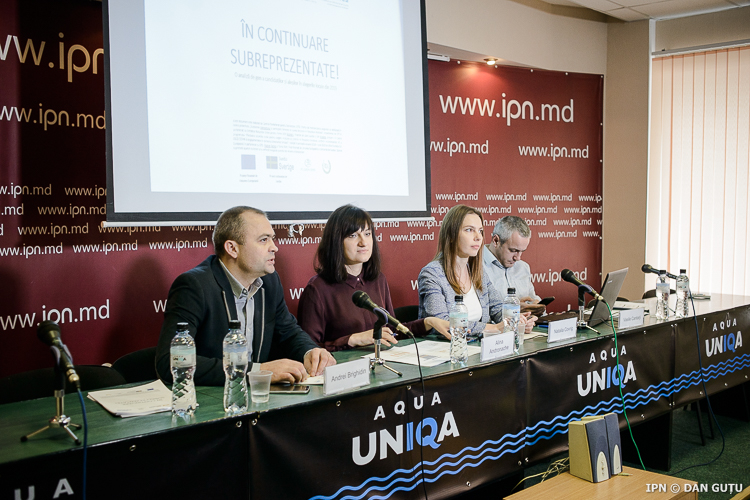
The more important is the executive post, the higher is the number of people who prefer this post to be held by a man rather than a woman. According to a poll carried out by the Partnership for Development Center during October 25-31, the people in Moldova still believe that particular categories of persons should not become involved in the decision-making process or hold public posts.
Natalia Covrig, programs coordinator at the Partnership for Development Center, told a news conference at IPN that when it is about the post of head of a parents committee, over 22% of the respondents prefer a woman in this and only 9% – a man. Almost 35% of those surveyed said the office of Head of State should be held by a man and only 7% said this should be held by a woman. Similar discrepancies are witnessed with reference to such posts as those of MP, mayor and district head.
According to Natalia Covrig, the situation improved compared with 2006, when 50.3% of the citizens considered that only a man can be President. “It is evident that the perception, the attitude to the presence of women in decision-making has changed and we are hopeful that the number of women who will run for these important posts at the next elections will rise,” she stated.
Expert in statistical analysis Vasile Cantarji said the monitoring of news, ads, debates and talk-shows at nine TV channels during September 19 – October 19 showed the participation of female candidates in debates was inferior to their presence on electoral lists. The political parties chose women to take part in debates on less popular channels.
According to the expert, 41% of the electoral ads presented only men and 10% only women. Some 8% presented both women and men. In the other cases, the male or female candidates were absent. The ads where the men dominated were broadcast mainly in prime time. As regards talk-shows, the women were practically absent from these. The men were present in 85% of the cases. In news items, the men were present in over 90% of the cases.
Alina Andronache, programs coordinator at the Partnership for Development Center, said the women remain underrepresented and a lot is yet to be done in Moldova to ensure a gender balance in decision-making.
Andrei Brighidin, assessment and development director at East Europe Foundation, stated that more players of society, including political parties, should contribute to a change in the situation, while the authorities should step up efforts so as to implement national policies in the field of gender equality.












